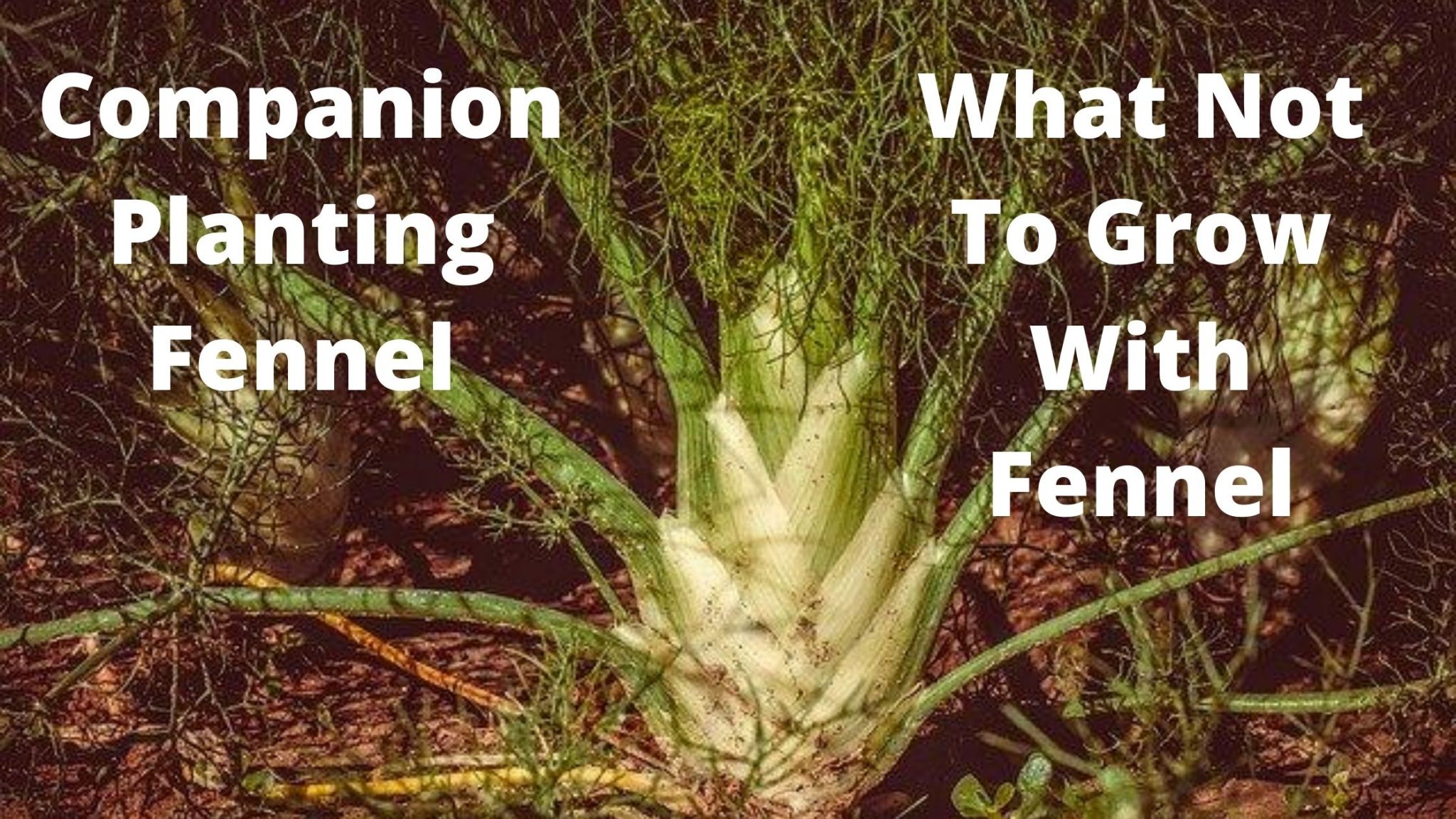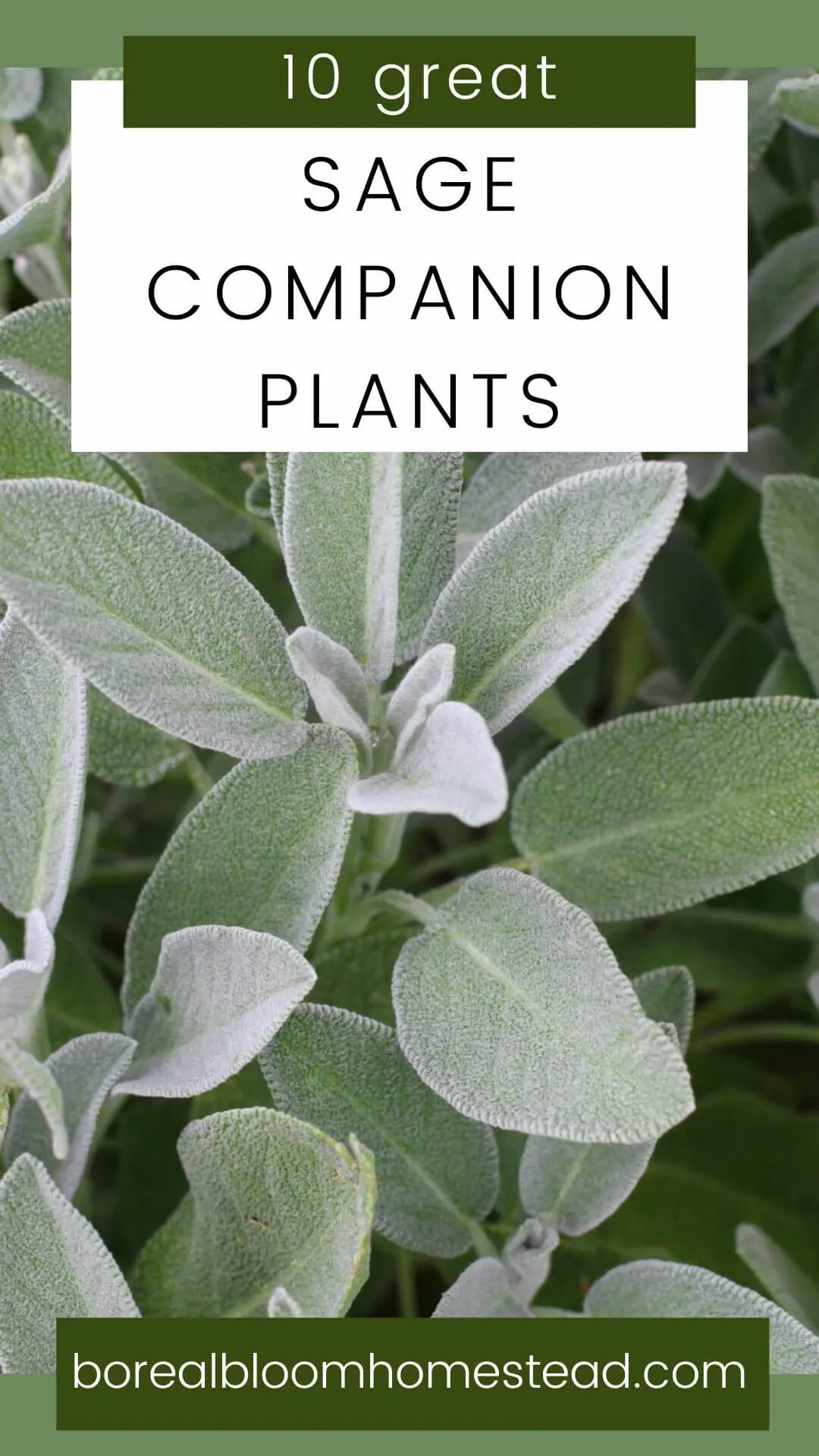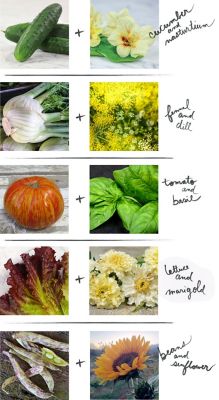Fennel: The Oddball Companion Plant That Actually Works
Fennel is a fascinating herb that has been used for centuries for its culinary, medicinal, and aromatic properties. But did you know that fennel can also be a great companion plant? That's right, this oddball herb can actually help to deter pests and diseases from your other plants.
In this blog post, we will explore the benefits of using fennel as a companion plant. We will also discuss how to plant and care for fennel, as well as some of the different ways you can use it in your garden.
Benefits of Using Fennel as a Companion Plant
Fennel has a number of beneficial properties that make it a great companion plant. For example, fennel can help to repel pests such as mosquitoes, aphids, and cabbage moths. It can also help to attract beneficial insects such as ladybugs and hoverflies, which can help to control pests.
In addition, fennel can help to improve the soil quality in your garden. It is a nitrogen-fixing plant, which means that it can help to add nitrogen to the soil. This can benefit other plants in your garden, as nitrogen is an essential nutrient for plant growth.
Fennel can also help to suppress weeds. Its strong aroma can help to deter weeds from growing nearby.
How to Plant and Care for Fennel
Fennel is a relatively easy plant to grow. It prefers full sun and well-drained soil. You can plant fennel seeds directly in the ground in early spring, or start them indoors a few weeks earlier.
Fennel plants need regular watering, especially during hot weather. They also benefit from being fertilized every few weeks with a balanced fertilizer.
Fennel plants are typically ready to harvest in about 3 months. You can harvest the leaves as needed, or wait until the plant matures and harvest the entire bulb.
How to Use Fennel in Your Garden
Fennel can be used in a variety of ways in your garden. You can use the leaves as a garnish, or add them to salads, soups, and stews. The bulb can be roasted, sauteed, or used in stir-fries.
Fennel can also be used as a medicinal herb. It has been used to treat a variety of ailments, including indigestion, gas, and bloating. It can also be used to help relieve coughs and colds.
Conclusion
Fennel is a versatile and beneficial herb that can be used in a variety of ways. Whether you are looking for a way to improve the health of your garden, deter pests, or add some delicious flavor to your meals, fennel is a great option.
Fennel is a versatile herb that can be used in a variety of dishes, from salads to soups to desserts. But did you know that fennel can also be a beneficial companion plant for other vegetables?
Fennel can help to repel pests and attract beneficial insects, which can improve the health and productivity of your garden. Some good companion plants for fennel include:
- Peas: Peas help to fix nitrogen in the soil, which can benefit fennel.
- Lettuce: Lettuce helps to suppress weeds and improve the drainage of the soil around fennel.
- Cucumbers: Cucumbers help to shade the roots of fennel, which can help to prevent them from drying out.
- Sage: Sage helps to deter pests from fennel.
For more information about companion planting fennel, please visit Garden Wiki. This website has a comprehensive guide to companion planting, including information on which plants are good companions for fennel and which plants should be avoided.
FAQ of companion plant fennel
Q: What are some good companion plants for fennel?
A: Some good companion plants for fennel include:
- Dill: Dill is a member of the same family as fennel, and they can help each other to thrive. Dill can help to deter pests from fennel, and fennel can help to improve the flavor of dill.
- Tomatoes: Tomatoes and fennel are both Mediterranean plants, and they can benefit from being planted together. Fennel can help to deter pests from tomatoes, and tomatoes can help to improve the flavor of fennel.
- Carrots: Fennel and carrots can help each other to grow by attracting different pests. Fennel can attract carrot flies away from carrots, and carrots can attract root maggots away from fennel.
- Peas: Fennel can help to deter aphids from peas, and peas can help to improve the flavor of fennel.
- Basil: Basil is a classic culinary companion plant, and it can also help to deter pests from fennel.
Q: What are some plants that should not be planted near fennel?
A: Some plants that should not be planted near fennel include:
- Cucumbers: Fennel can stunt the growth of cucumbers.
- Broccoli: Fennel can suppress the growth of broccoli.
- Kale: Fennel can prevent kale from flowering.
- Lettuce: Fennel can attract pests that can damage lettuce.
- Spinach: Fennel can prevent spinach from producing seeds.
Q: How does fennel help to deter pests?
A: Fennel has a strong odor that can repel some pests, such as aphids, carrot flies, and root maggots. It can also attract beneficial insects, such as ladybugs and hoverflies, which can help to control pest populations.
Q: What are some other benefits of companion planting with fennel?
A: In addition to deterring pests, companion planting with fennel can also offer a number of other benefits, such as:
- Improved pollination: Fennel can help to improve pollination of nearby plants by attracting beneficial insects.
- Enhanced flavor: The strong flavor of fennel can help to enhance the flavor of nearby plants.
- Improved soil quality: Fennel can help to improve soil quality by fixing nitrogen and suppressing weeds.
Image of companion plant fennel
Here are 5 different images of companion plants for fennel from Pinterest:
- Peas: Peas are nitrogen-fixing plants, which means they can help to improve the soil quality for fennel. They also help to deter pests, such as aphids and cabbage worms.

- Lettuce: Lettuce is another good companion plant for fennel because it doesn't require a lot of space and can help to shade the fennel's roots. Lettuce also helps to repel pests, such as slugs and snails.
- Cucumbers: Cucumbers and fennel are both tall plants, so they can be planted together to help support each other. They also have similar growing requirements, so they can thrive in the same conditions.
- Sage: Sage is a herb that can help to repel pests, such as mosquitoes and flies. It can also help to improve the flavor of fennel.

- Tomatoes: Tomatoes and fennel can be planted together because they have similar growing requirements. They both need full sun and well-drained soil. Tomatoes can also help to deter pests, such as aphids and whiteflies.

Post a Comment for "Fennel: The Oddball Companion Plant That Actually Works"